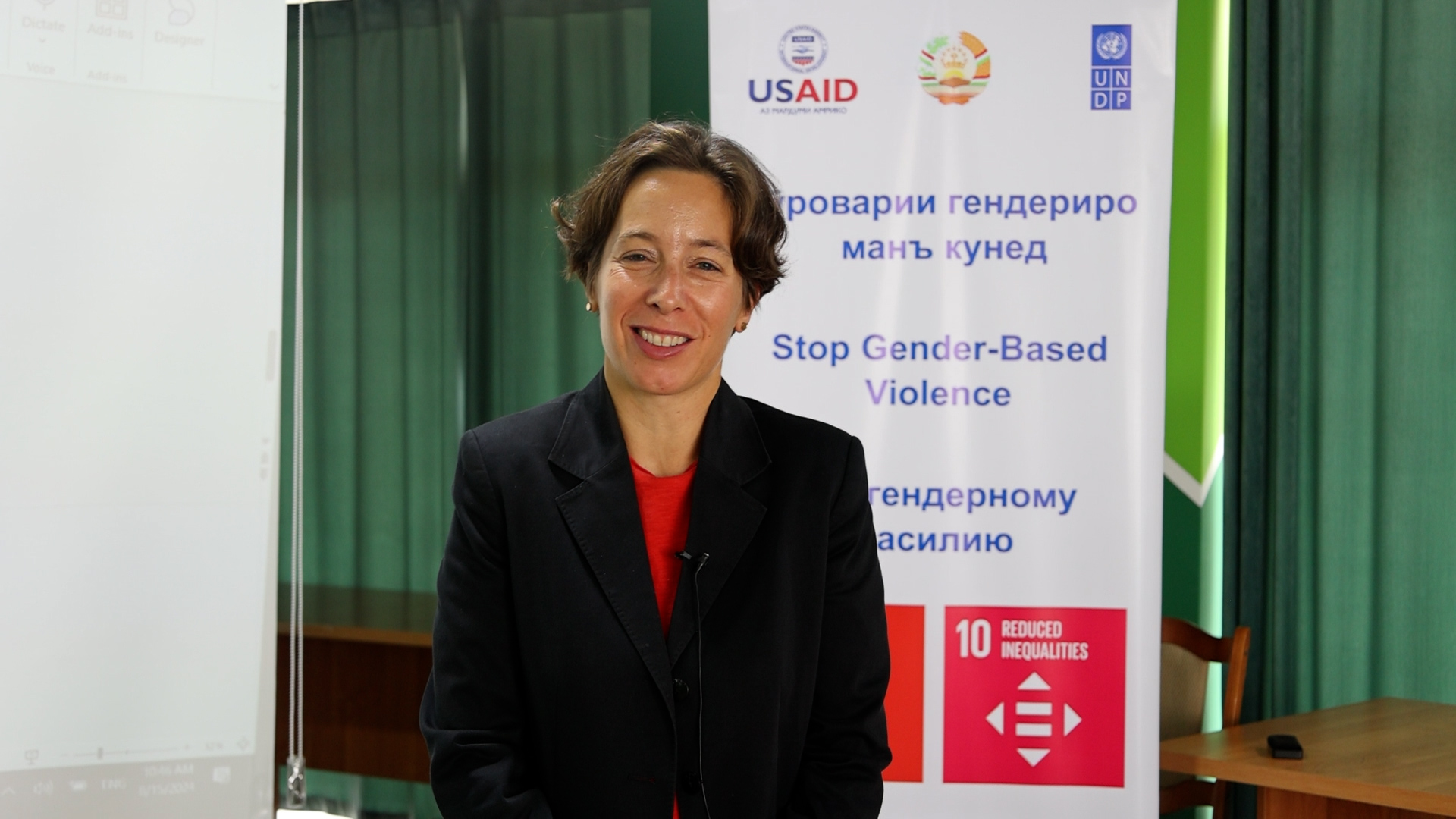USAID-Supported Stop GBV Project, implemented by the UNDP, Equips Judges with Critical Knowledge to Enhance Support for Gender-Based Violence Survivors.
Tajik judges lead the way in trauma-informed approaches to gender-based violence cases
September 24, 2024

Judges from Tajikistan’s Supreme Court during the intensive training sessions designed to align their approach to handling cases involving gender-based violence (GBV)
The USAID Stop Gender-Based Violence Project, in collaboration with UNDP Tajikistan, supported eleven judges from Tajikistan’s Supreme Court in benefiting from an intensive workshop designed to align their approach to handling cases involving gender-based violence (GBV) with international best practices. This workshop was aimed at supporting Tajikistan’s ongoing efforts to build the capacity of justice sector actors to deliver gender-responsive, trauma-informed, and survivor-oriented services.
During the workshop with the Supreme Court judges, Morgane Landel, an international expert provided up-to-date international best practices on judicial responses to GBV.
Nigora Kholova, another neurology expert, explained how traumatic experiences leave a long-term impact on the human brain and affect the behavior of GBV survivors.
This was the first time the participating judges attended an event on how trauma from GBV can impact the ability of a survivor to tell her/his story.
Moreover, during the workshop, an advocate who specializes in providing access to justice for GBV survivors shared the challenges survivors face in getting support from law enforcement and courts. Shamigul Aminova, an adult education expert, shared techniques with the judges for effectively training their peers.
By building the capacity of the justice sector, particularly the judiciary, the activity seeks to ensure that women who come forward with complaints of GBV, especially domestic violence, receive the necessary and effective support.

Morgane Landel, International GBV expert
The workshop was facilitated by Morgane Landel, an international consultant with 10 years of experience working on GBV across numerous countries, who emphasized the critical role that judges play in the governmental response to GBV.
"Having judges as participants in this workshop is paramount because they are the main duty bearers who can foster a better environment for a society free from gender-based violence," Landel said.

Daler Kholikmuradzoda, Supreme Court Judge
Reflecting on the current state of the legislative framework, Judge Daler Kholikmuradzoda, a participant, noted that although steps have been taken to prevent GBV and support GBV victims in Tajikistan, more efforts are still required: "In our society, some challenges related to this issue are still persistent. I believe that the training of judges will be beneficial to achieve gender equality, provide equal opportunities to exercise human rights, particularly for women, and it will produce effective results."

Mavjuda Pulodi, Supreme Court Judge
Another senior Supreme Court judge, Mavjuda Pulodi, remarked, “It is worth highlighting that most of the judges who participated in this workshop are trainers tasked with equipping other judges with practical knowledge. For me, it is not just interesting but essential to learn how our colleagues in European countries address GBV.” She added, “The knowledge we gain from this workshop empowers us to critically examine our practices and to ensure that our responses as judges are not only legally sound but deeply compassionate and informed by the experiences of survivors.”
This workshop for the judges was the first in a series of justice sector trainings on the topic, and future participants will include civil society organizations and advocates.
As Tajikistan continues to align its legal framework and policies with international best practices, UNDP remains committed to collaborating with national partners to ensure that survivors of GBV receive the support and justice they deserve. Together, we are paving the way for a future where all individuals can live free from violence and discrimination.
For media inquiries, please contact:
Nigora Fazliddin, UNDP Tajikistan: nigorai.fazliddin@undp.org

 Locations
Locations



